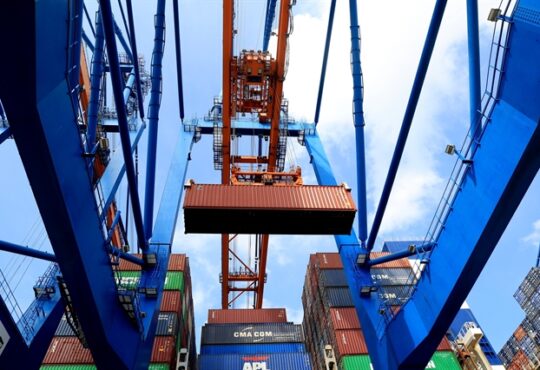
African countries participating in the African Continental Free Trade Area (AfCFTA) are preparing to adopt the Digital Trade Protocol in early 2024, set to define the continent’s digital infrastructure. As a key component of the planned African digital single market, the trade agreement will regulate digital trade, eliminating barriers and establishing rules, standards and interoperability frameworks.
The European Centre for Development Policy Management (ECDPM) policy experts Chloe Teevan and Melody Musoni argue in a brief that the European Union (EU) should cooperate with the African Union (AU) to boost interoperability.
“To advance the African [Digital Trade Protocol], the EU and AU should collaborate on developing interoperable digital services and the regulatory frameworks to support them,” the duo writes in a brief published on ECDPM’s website. “The AU can draw upon the EU’s experiences and tailor strategies unique to the African context.”
The EU is currently building its interoperability framework and digital ID system, known as the eIDAS regulation for interoperable digital ID and the European Digital Identity (EUDI) Wallet. And while the European project has already kicked of pilot programs and is making progress on standardization, Africa’s e-governance and digital ID systems and their policy frameworks are in early developmental stages.
The AU released its Digital ID Framework in December, complementing it with the AU Interoperability Framework for Digital ID this January, a document that lays out the bloc’s vision of a digital ID ecosystem. The framework doesn’t call for a unified continent-wide digital ID system but proposes increased interoperability between different projects. The use of biometrics is yet to be determined as technical specifications will be decided during the second phase of implementation.
In May 2023, African countries including Ghana, Gabon, Guinea, Rwanda, Tunisia and Zimbabwe have signed a declaration on data and digital identity interoperability called the Smart Africa Trust Alliance (SATA).
“As Africa takes further steps towards developing its own [digital single market] the EU can engage African policymakers to get a clear picture of the support Africa needs moving forward,” says the brief. “This also includes the EU being more open and transparent in sharing Europe’s successes and the challenges it has faced in establishing its own cross-border interoperable digital services, to develop new areas of potential collaboration for the future.”
Aside from the Digital Trade Protocol and the Digital ID Framework, the AU has also recently published its Data Policy Framework. All of these efforts are part of the AU’s Digital Transformation Strategy and Agenda 2063, the pan-African plan for its future digital economy.
The bloc has already adopted the AU Cyber Security and Data Protection Convention, known as the Malabo Convention, which regulates e-commerce transactions, cybersecurity and data protection aspects and is looking at building its own AI strategy.
Article Topics
Africa | digital economy | digital ID | digital public infrastructure | Europe | interoperability






